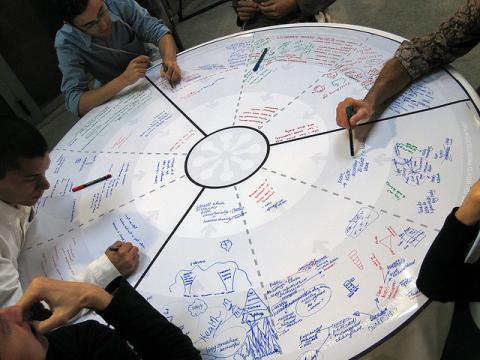A new MMLAP Area for the discussion of best practices

A MMLAP (Mobilization and Mutual Learning Action Plan) Area has been activated within the Community of Practice of the ASSET website: this area is planned to stimulate the debate between the ASSET consortium and other MMLAP projects on the Best practices to develop and implement the communication between science and society.
“Society engagement is a necessary condition to address societal challenges. It is in the same vein that the MMLs have been designed by the Commission. The aim of MMLs is to create mechanism to address societal challenges, to bring together a wide range of actors, to develop mutual understanding and joint solutions” .
To start the exchange of best practices, two webinar have been organized on June 3rd and July 7th, to activate a first contact between MML projects in view of the creation of an internal area for the debate. Besides ASSET, the webinars were joined by these projects: BEWATER, GAP2, PERARES, SIFORAGE, SYN-ENERGENE. The same projects, with the addition of the RNDIALOGUE and SATORI are represented in the MMLAP Area.
During the webinar, different methods targeted on different stakeholders have been introduced and discussed, like, to mention some of them, local workshops managed in local languages to better involve the communities in the debate; Science Shops to promote science with and for society; an Artistic festival to talk about biology; a set of activities focused on some specific issues (and not on the whole subject of the project) to stimulate a real participation; a twofold approach based on influencing actions to promote dialogue and demonstration actions to promote participation.
The projects represented are very different in terms of issues treated, because the debate should mainly focus on the methodology adopted to achieve specific goals in various fields such as environment, education, agriculture, etc. (e.g., what works and what does not work in participatory practices, training, and communication with stakeholders). Also, the state of art of the projects involved is quite various (some are at the beginning, some are now working on the development of the Action Plans, some are already or almost concluded). This variety is an essential condition to have a stimulating and complete debate on the best practices to adopt.
The discussion and the collection of useful material continues now on the online forum that has just been activated in the ASSET website.
